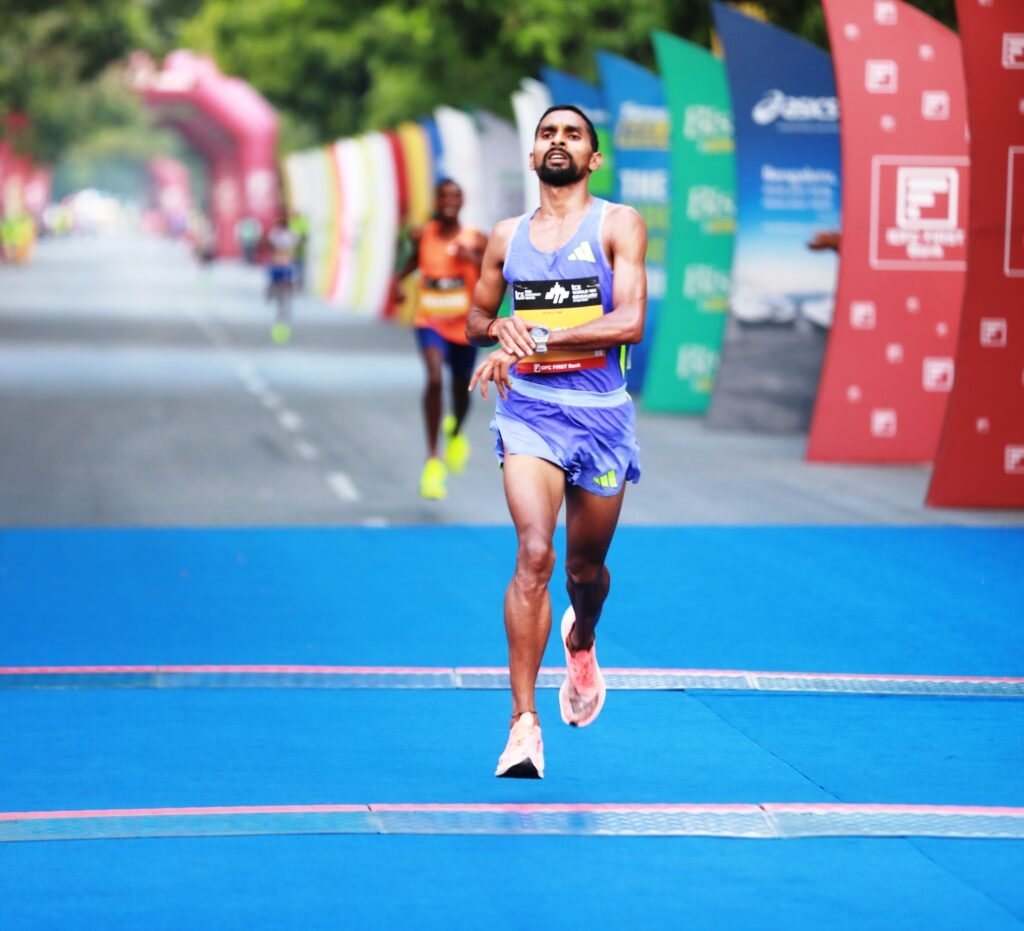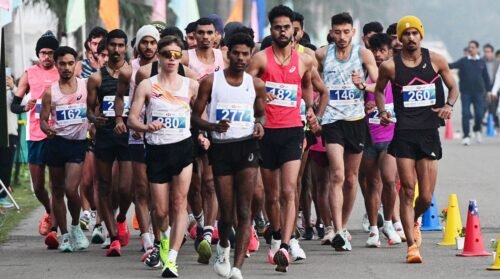Experts raise concerns over distance runners turning up in the Bengaluru 10k road race prize money event, just a week after gruelling track races in Kochi. Three runners are in the team for the Asian Championships next month.

Navneet Singh
Just a week after racing distance track races during domestic competition in Kochi, several leading runners lined up at the prize money Bengaluru 10k event organised by Procam International.
Is too much too soon good for the health of the runners? Racing distance events within a short span of time can drain out athletes. It also highlights the lack of structured road racing circuit in India.
Top athletes like Sawan Barwal, Abhishek Pal and Sanjivani Jadhav won track races in their respective events at the 28th National Federation Senior Athletics Championship held between April 21 to 24, in Kochi. The three runners have been shortlisted for the Asian Championships in Gumi, South Korea from May 27 to 31.
The prize money at the Bengaluru 10k event was a big draw for the athletes. Running multiple races in quick succession can cause physical and mental exhaustion. If the body doesn’t get enough time to recover, fatigue sets in and can impact performance in the long run, says experts.
“It takes at least 10 days or more to recover from a hard 10,000m track race and two back-to-back races should be avoided. When the Asian Championships is so close, focus should have been on recovery,” according to an Army’s athletics coach associated with distance running, who did not wish to be named.
Barwal and Abhishek Pal competed in both 5000m and 10000m races in Kochi. Pal, the Asian Championships bronze medallist, won the 5k track race with a timing of 13:40.59, while Barwal came second (13:41.58). Both athletes, along with bronze medallist Kiran Matre (13:47.16) dipped under the Asian Championships qualification mark of 13:48.33. In the 10k track event, Barwal was at the top of the podium with a new meet record (28:57.13) and Pal (29:14.86) finished with a silver medal. Pal has been named in the 5000m team for Asian Championships while Barwal made the cut for 10,000m.
Sanjivani had an impressive domestic tournament, winning both the 5k (15:43.42) and 10k track races (33:44.43). She will also compete in the Asian Championships.
The athletes, on their part, need to set priorities. Majority of the runners come from humble backgrounds and they feel competing in prize money races gives them financial stability. But having a good balance between prize money road races and national or continental races is also important for churning out good times as well as mental well-being.
“Some athletes do not know how to prioritise and they just do not want to lose out on an opportunity to earn some extra money. But it should not be at the cost of your major races,” a top runner said.
Take for example, Army’s marathon AB Belliappa. To prepare for the 2024 Valencia Marathon he didn’t compete in prize money road races as his main goal was to improve long standing national record in the marathon of 2:12:00.
“It was tempting to compete in prize money races but that would have upset my training plan for the marathon where I was aiming for a good performance,” Belliappa had said before his 2024 Valencia marathon.
There is also pressure from sponsors to appear in events which an athlete is unable to refuse. “One of the sponsors of the Bengaluru 10k is also a personal sponsor of one of the athletes and they wanted his presence so he could not refuse,” said an official. “This hints that sponsors, athletes and coaches are not on the same page,” the official added.
Having a galaxy of top runners is good for the organisers. There is also nothing wrong to earn prize money as long as your legs are able to churn out the speed, but at the same time there should be an adequate gap between the races to recover physically and mentally.



